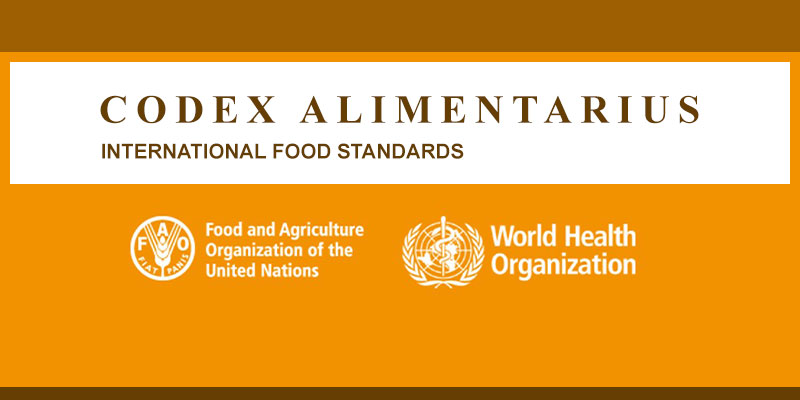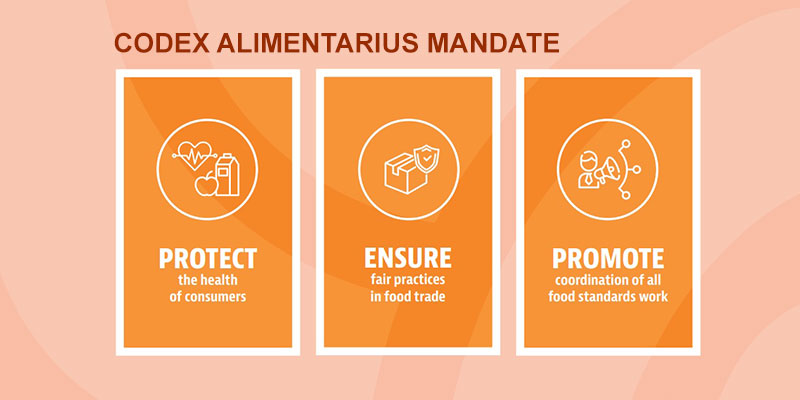- India
- Jul 04
Explainer - What is Codex Alimentarius?
• India is participating in the 86th session of the Executive Committee (CCEXEC) of the Codex Alimentarius Commission (CAC) being held at the Food and Agriculture Organisation (FAO) headquarters in Rome from July 1-5.
• Established by the Food and Agriculture Organisation of the United Nations (FAO) and World Health Organisation (WHO), the Codex Alimentarius Commission is the UN food standards body charged with protecting consumer health and ensuring fair practices in international food trade.
• In December 2023, India was elected as a member representing the Asian region in the executive committee of the Codex Alimentarius Commission, the food safety and quality standard-setting body created by the UN.
Codex Alimentarius
• International food trade has existed for thousands of years but until not too long ago, food was mainly produced, sold and consumed locally. Over the last century, the amount of food traded internationally has grown exponentially, and a quantity and variety of food never before possible travels the globe today.
• The international trade in food is now worth over $1.6 trillion annually.
• The Codex Alimentarius, or “Food Code”, is a collection of standards, guidelines and codes of practice developed by consensus and based on the most robust up-to-date science available.
• It includes standards for all the principal foods, whether processed, semi-processed or raw, for distribution to the consumer.
• The Codex Alimentarius includes provisions in respect of food hygiene, food additives, residues of pesticides and veterinary drugs, contaminants, labelling and presentation, methods of analysis and sampling, and import and export inspection and certification.
• Public concerns about food safety issues often place Codex at the centre of global debates.
How a Codex Standard is developed?
• The procedures for preparing standards are well defined, open and transparent.
• A national government or a subsidiary committee of the Commission usually makes the proposal for a standard to be developed. They then prepare a discussion paper that outlines what the proposed standard is expected to achieve, and then a project document that indicates the time frame for the work and its relative priority.
• The Commission reviews the project document and decides whether the standard should be developed as proposed.
• The preparation of a proposed draft standard is arranged by the Commission Secretariat and circulated to member governments, observer organisations and other Codex committees for two rounds of comments and special advice.
• Standards can take several years to develop. Once adopted by the Commission, a Codex standard is added to the Codex Alimentarius.
• Codex standards are based on sound science provided by independent international risk assessment bodies or ad-hoc consultations organised by FAO and WHO.
• Codex standards and related texts are voluntary in nature. They need to be translated into national legislation or regulations in order to be enforceable.
• Codex standards ensure that food is safe and can be traded.
• The texts contained in the Codex Alimentarius are considered the benchmark standards for international commerce in food, and as such are recognised by the World Trade Organisation (WTO).
• They facilitate cross-border exchange while preventing and helping to resolve trade disputes. Codex texts are not mandatory but governments frequently use them as the basis for national legislation.
• The texts are adopted by the Codex Alimentarius Commission.
Who decides on standards in Codex?
• Since its beginnings in 1963, the Codex system has evolved in an open, transparent and inclusive way to meet emerging challenges.
• The Codex Alimentarius Commission and its subsidiary bodies are committed to elaborate as necessary of Codex standards and related texts to ensure that they are consistent with and reflect current scientific knowledge and other relevant information.
• Each member of the Codex Alimentarius Commission is responsible for identifying, and presenting to the appropriate committee, any new scientific and other relevant information which may warrant revision of any existing Codex standards or related texts.
Codex Alimentarius Commission
• The Codex Alimentarius Commission emerged following a four-year process and met for the first time in Rome from June 25 to July 3, 1963. That inaugural meeting is taken as the date that Codex came into being.
• It was established by the Food and Agriculture Organisation of the United Nations (FAO) and the World Health Organisation (WHO) to protect consumer health and ensure fair practices in the food trade.
• The Codex Alimentarius Commission is based in FAO in Rome.
• It currently comprises 188 member countries and one member organisation (The European Union). There 240 Observers, of which 60 are inter-governmental organisations, 164 are non–governmental organisations and 16 are United Nations agencies.
• The Commission meets in regular session once a year alternating between Geneva and Rome.
• The programme of work of the Commission is funded through the regular budgets of WHO and FAO with all work subject to approval of the two governing bodies of the parent organisations.
Codex Alimentarius and India
• The National Codex Contact Point (NCCP) of India has been constituted by the Food Safety and Standards Authority of India (FSSAI) for keeping liaison with the Codex Alimentarius and to coordinate Codex activities in India.
• NCCP for India coordinates and promotes Codex activities in India in association with the National Codex Committee and facilitates India’s input to the work of Codex through an established consultation process.
India pitches for strengthening quality standards for spices
• Kamala Vardhana Rao, CEO of the Food Safety and Standards Authority of India (FSSAI), is representing India in the 86th session of the Executive Committee being held at FAO headquarters in Rome.
• During the session, India strongly supported the advancement of standards development for various spices, including small cardamom, turmeric, and vanilla.
• This initiative is particularly significant for India, being a major producer and exporter of these spices, as it would facilitate smoother international trade.
• India also backed the progression of standards for named vegetable oils, guidelines for the control of Shiga Toxin-Producing Escherichia coli, and the safe use and reuse of water in food production and processing.
• Moreover, India also championed the proposal for developing Codex guidance on food safety considerations related to the use of recycled materials in food packaging.
• This initiative is crucial in addressing global challenges such as climate change, environmental protection and sustainability.
Manorama Yearbook app is now available on Google Play Store and iOS App Store


